Last updated on April 18, 2024
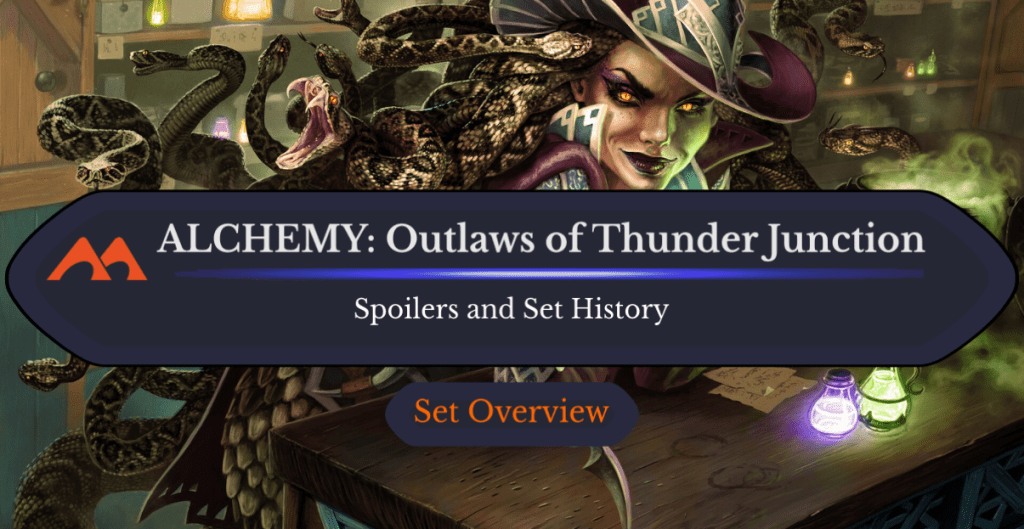
Rattleback Apothecary | Illustration by Loïc Canavaggia
Alchemy sets are like Thanos: They’re inevitable. With some exceptions like March of the Machine, each Standard MTG set has its Alchemy counterpart.
Today, we’re previewing Alchemy: Outlaws of Thunder Junction, or simply Alchemy: Thunder Junction. It’s not yet confirmed, but that’s how WotC rolls with these sets. Alchemy sets are usually released 20-30 days after the main set release, and shortly after all cards have been spoiled. Based on Alchemy’s past record, it’s time to speculate on what we can find on Alchemy: Thunder Junction.
Let’s dive in!
Alchemy: Outlaws of Thunder Junction: Basic Information
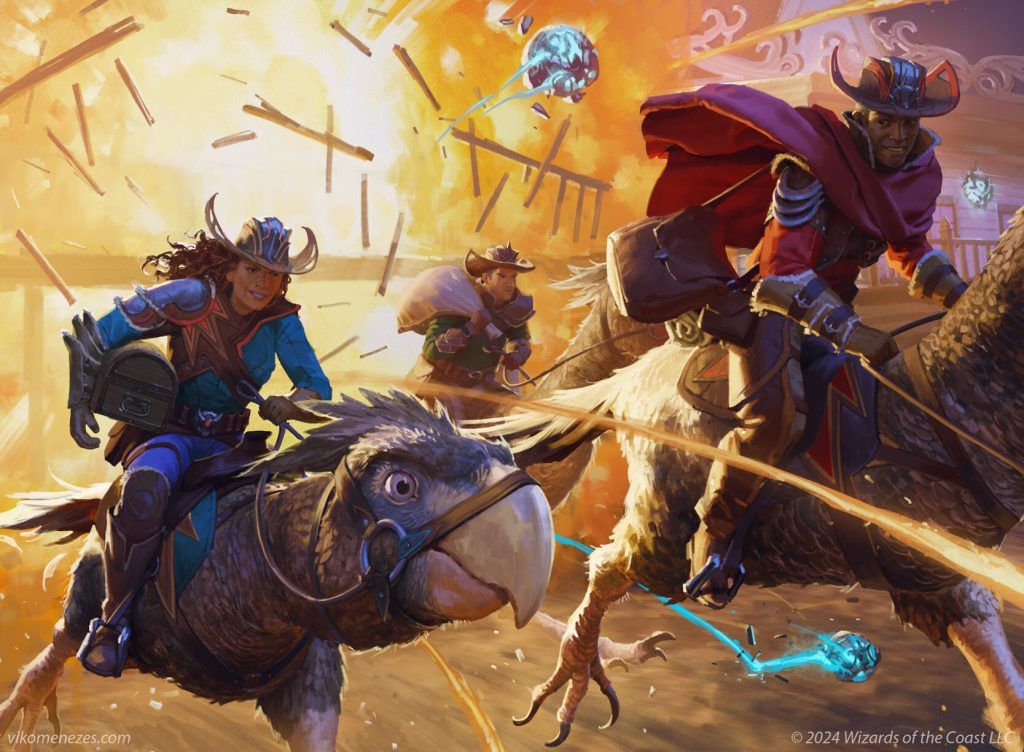
Requisition Raid | Illustration by Viko Menezes
Set Details
| Set Symbol | TBA |
| Set Code | A24, Y24, YOTJ |
| Hashtag | #AlchemyOTJ |
| Number of Cards | 30 |
| Rarities | 10 uncommons, 15 rares, 5 mythic rares |
| Mechanics | Crime, Outlaw, Plot, Saddle, Spree, Conjure, Perpetually, Spellbook, Seek |
Important Dates
| Previews start | TBA |
| Full gallery available | TBA |
| Available on Draftsim's Draft Simulator | TBA |
| Release on MTG Arena | TBA |
| Available on Arena Tutor | TBA |
About the Set: The Story
Set Mechanics
Alchemy: Thunder Junction is likely going to have mechanics from Standard OTJ (Outlaws of Thunder Junction) and digital-only mechanics. Alchemy cards usually mix and match them in single card designs – for example, a card that cares about crime and outlaws at the same time. Let’s see what mechanics we can expect from this set’s offerings.
Crime
To commit a crime in MTG terms is simply to target your opponent or any permanent controlled by them. You can also commit a crime by targeting their libraries or cards in their graveyards, too.
Outlaw
Like crime, outlaw isn’t a new mechanic but a generalization. Outlaws in MTG are assassins, mercenaries, pirates, rogues, and warlocks. OTJ has some outlaw-matters cards and outlaw typal interactions. Cards like At Knifepoint and Back in Town reward you nicely for having many outlaw creatures in your deck.
Plot
Plot is this MTG set’s most complicated mechanic. A spell with plot can be exiled face-up by paying the plot cost only at sorcery speed – that's to say, in your main phase when the stack is empty. In a later turn, you may cast the spell for free at sorcery speed (even if it’s a plotted instant card). There are some interesting things to be done with plot. For example, Beastbond Outcaster is a 3/3 creature, but if you plot it for , you can cast it for free at a later turn when you also control a creature with power 4 or greater and draw a card.
Saddle
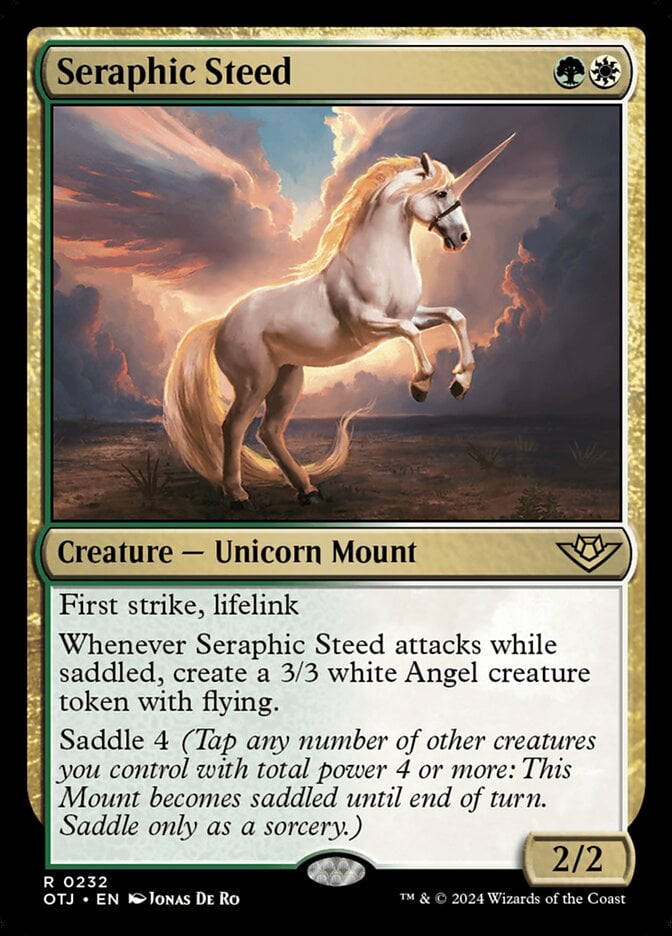
Saddle X is a mechanic only found on mount creatures. To saddle X, you need to tap creatures with power X or less right before the combat phase. If you do, you or your mount creature get an advantage. Seraphic Steed is a card that requires 4 power to saddle, but if you do, you’ll get a free 3/3 Angel token with flying when Seraphic Steed attacks.
Spree
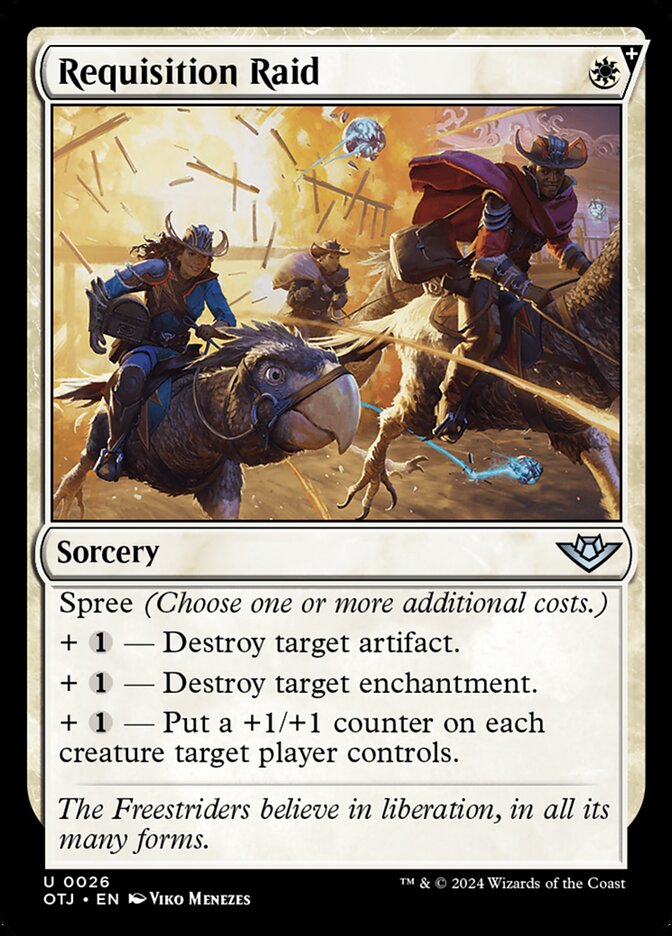
Spells with spree are modal spells, and you can choose between two or three spell modes, but each mode has a different cost. You can pay for just one mode, for two modes, or for all three of them. For example, Requisition Raid is a card that can destroy an artifact, kill an enchantment, or put a +1/+1 counter on each creature a player controls. Each individual mode costs , but you can combine the costs and have the spell cost with two modes or just with all three modes selected.
Conjure
Some Alchemy cards allow you to conjure a card, that is, to make a digital copy of a given card on the battlefield, in your hand, or in your library. It’s like a token, except that it behaves like a card in other zones. For example, A Golden Opportunity is a saga that can conjure a Gilded Goose and a Golden Egg onto the battlefield.
Perpetually
Perpetually is a permanent alteration to a card or a set or cards. The most common is to alter the mana value of the cards, or the power and toughness of a set of creatures. For example, Alchemy: Karlov Manor has 10 cards that alter something perpetually, so this is a very frequent Alchemy mechanic.
Spellbook
Some Alchemy cards let you draft a spell from a spellbook in certain situations, like when a creature attacks or ETBs. A spellbook is a limited number of cards tied thematically with that card. For example, Emmara, Voice of the Conclave is a Selesnya card that allows you to draft Selesnya cards like March of the Multitudes and Venerated Loxodon from Emmara’s spellbook. My prediction for this set is that we’ll have an outlaw-matters card with a spellbook filled with different outlaws.
Seek
Seek is a digital-only mechanic that allows you to pull a random card from your deck that meets the requirements. So, I can seek a forest card, or a nonland permanent that costs 3 or less. It’s a little bit better than drawing a card because odds are I’ll get something better than a random card that can be a useless land later in the game.
Speculation
Based on preview Alchemy designs, we can expect mechanics from Standard OTJ and digital-only mechanics to be mixed in card design, often generating interesting designs. We can have something like a creature that says “whenever you commit a crime, this card perpetually gets +1/+0”, or a legendary outlaw that lets us draft different outlaws from its spellbook. We could also have a spree spell that conjures a bunch of different cards into our hand based on what we need, like a Disenchant or an edict effect.
Alchemy sets also boost certain underdeveloped aspects of the main set and create new possibilities for the Alchemy or Historic formats. We can have a card that seriously boosts the “play a spell on your opponent’s turn” archetype, or a card that seriously boosts outlaw typal decks.
Official Spoilers
TBA
Unofficial Spoilers/Leaks
TBA
Notable Cards
TBA
Available Products
Alchemy: Outlaws of Thunder Junction doesn’t have a physical release, because it only exists on MTG Arena. Alchemy products are sold mainly via Alchemy boosters in the MTG Arena store. They cost the same as regular Standard boosters, so 1000 gold/200 gems for a normal Booster and 1300 gold/260 gems per Mythic booster. Players can also draft the set on MTG Arena mixed with the main Outlaws of Thunder Junction set.
Round Up
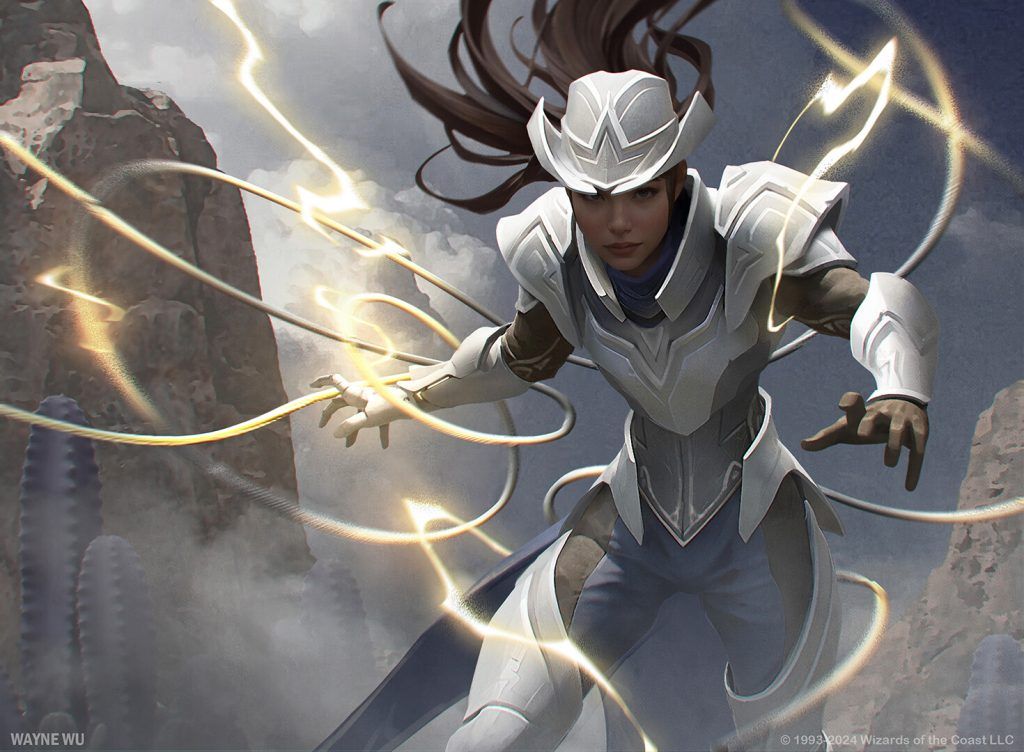
Peerless Ropemaster | Illustration by Wayne Wu
Alchemy sets are an important source of new cards for MTG Arena, be it Historic Brawl, Alchemy, Historic, or even Timeless. Alchemy is a slightly more powerful format than Standard, with cards from Lord of the Rings and some juiced-up cards. And if you’re into Limited, the best way to collect these cards is to draft them besides OTJ as soon as they’re available.
Do you play digital-only cards regularly? Or do you just ignore them and stick to Standard or Explorer? Let me know in the comments below, or over at the Draftsim Discord.
Thanks for reading folks, and stay safe out there!
Follow Draftsim for awesome articles and set updates: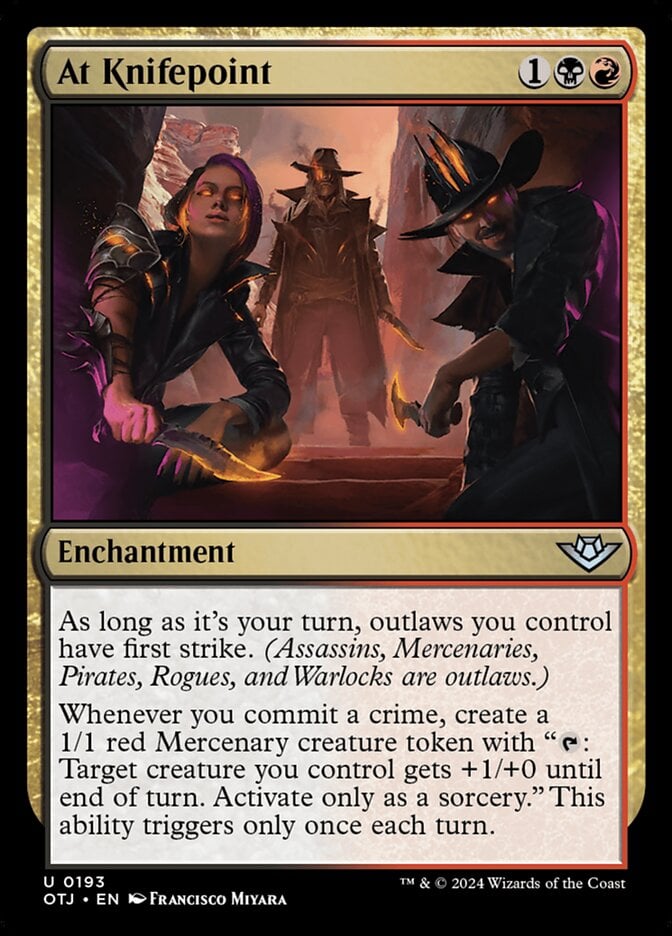
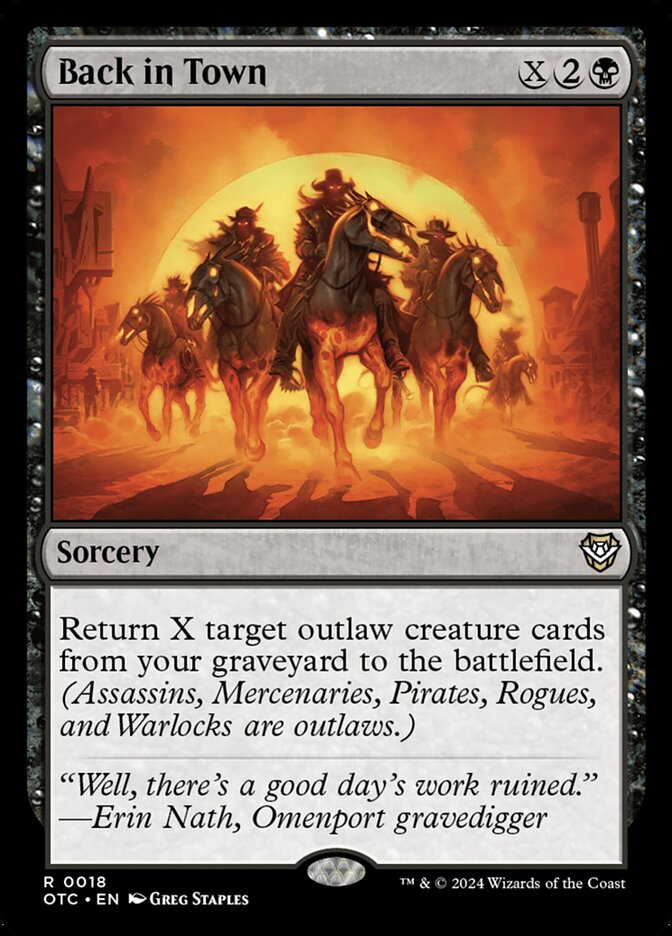
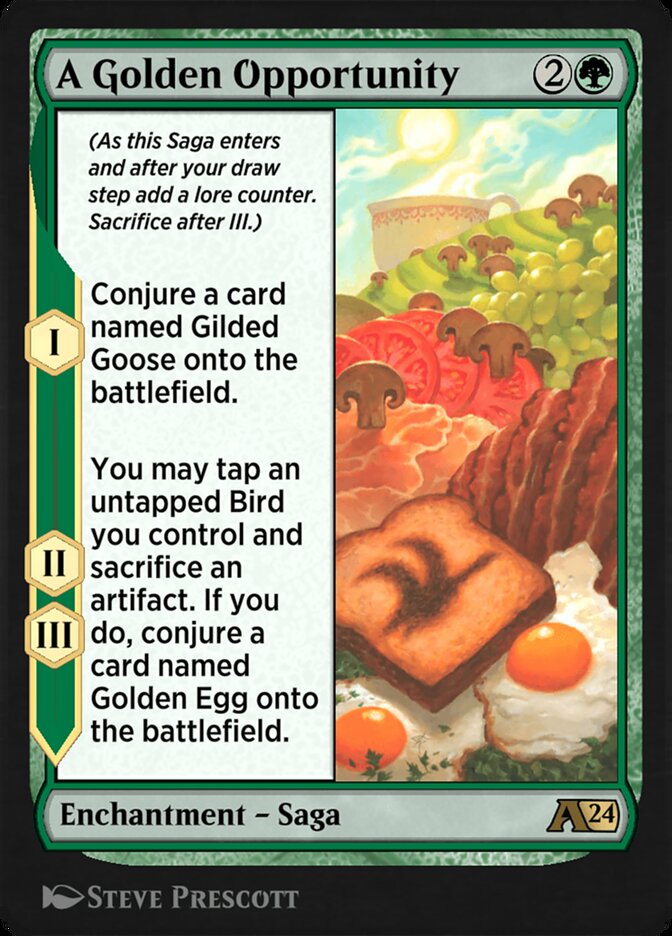
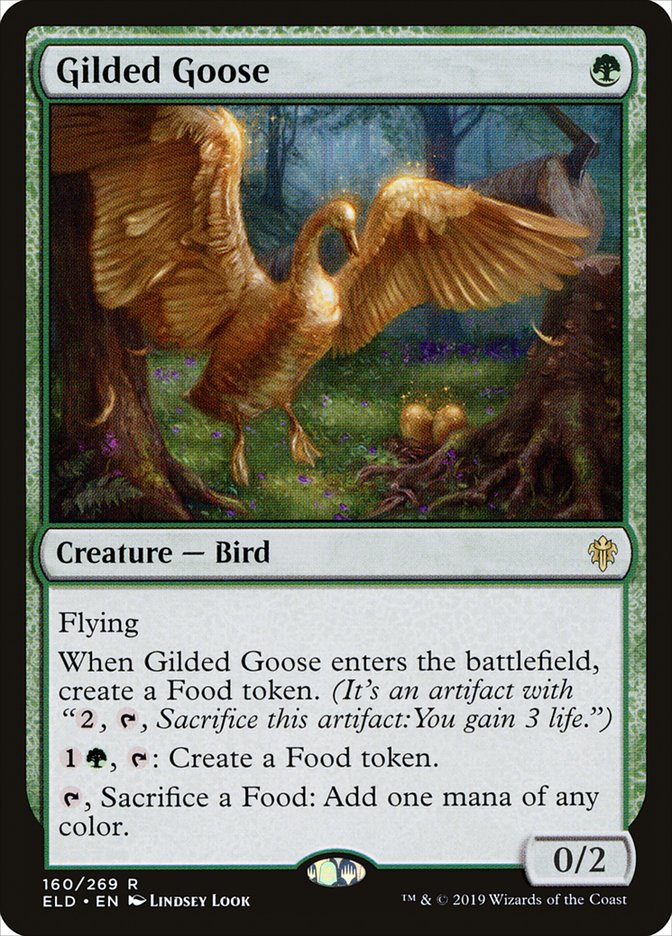
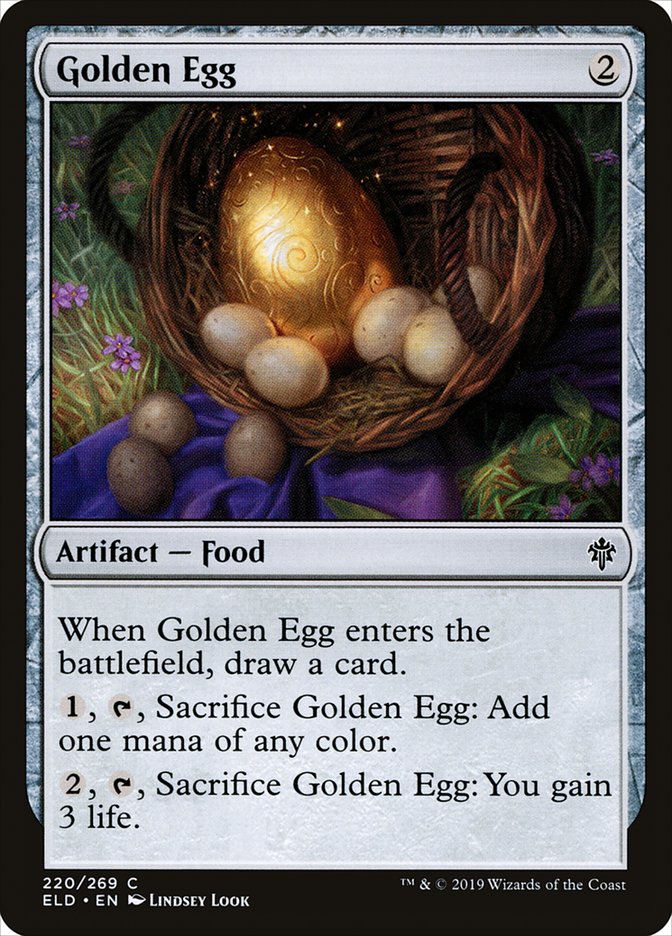
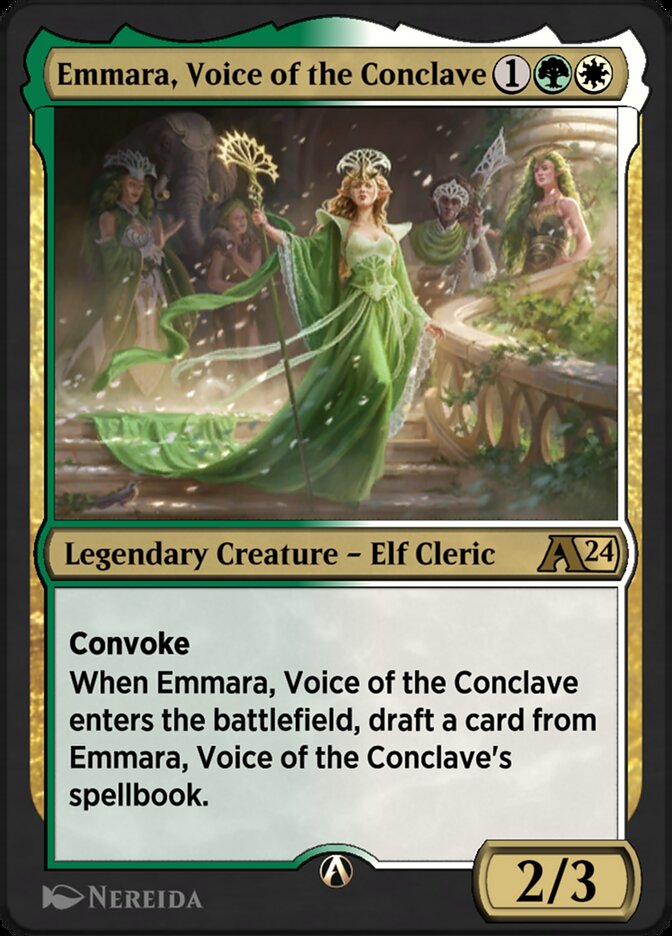
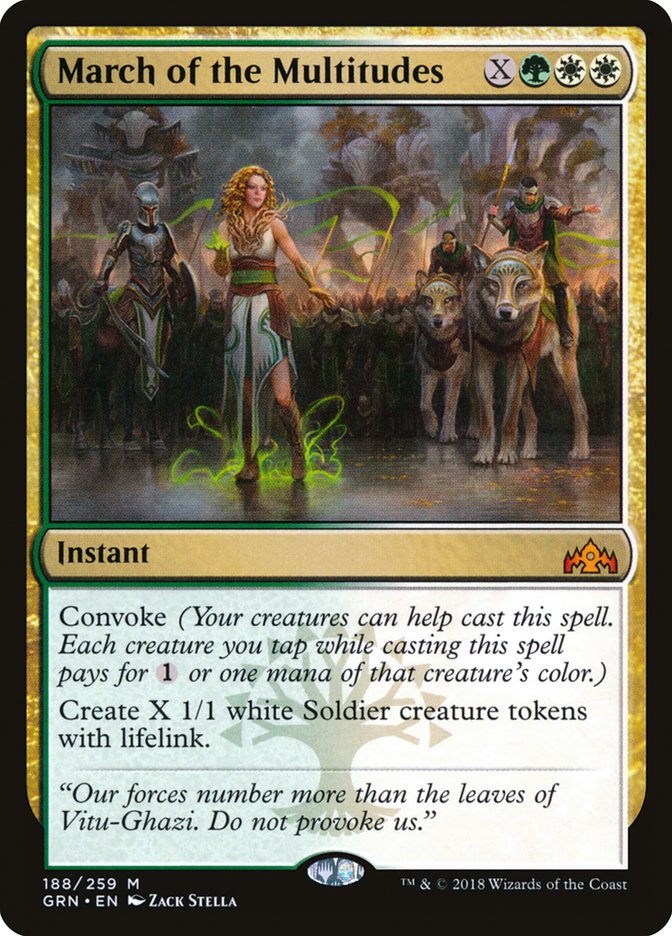
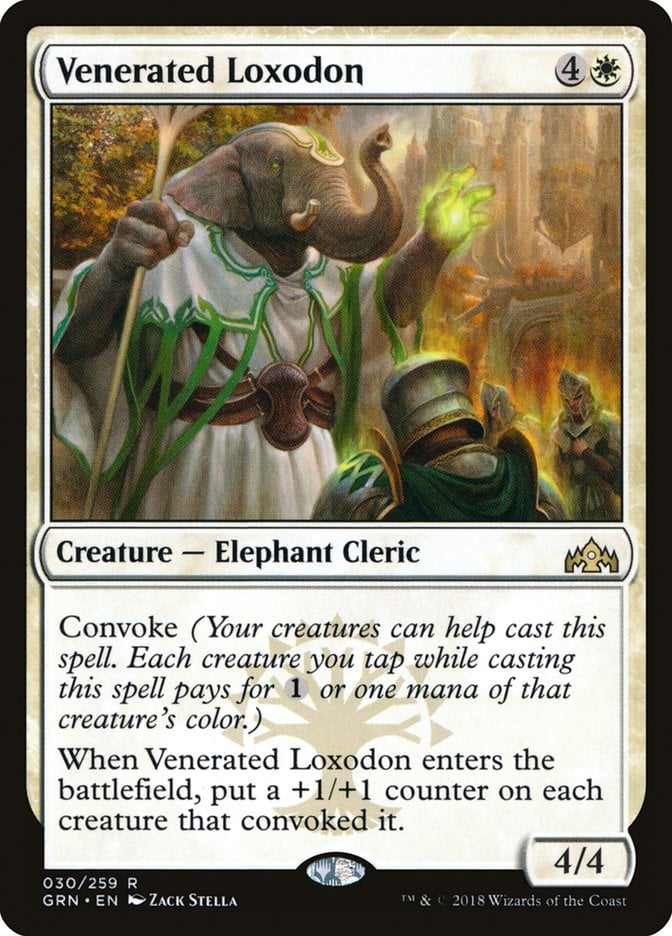
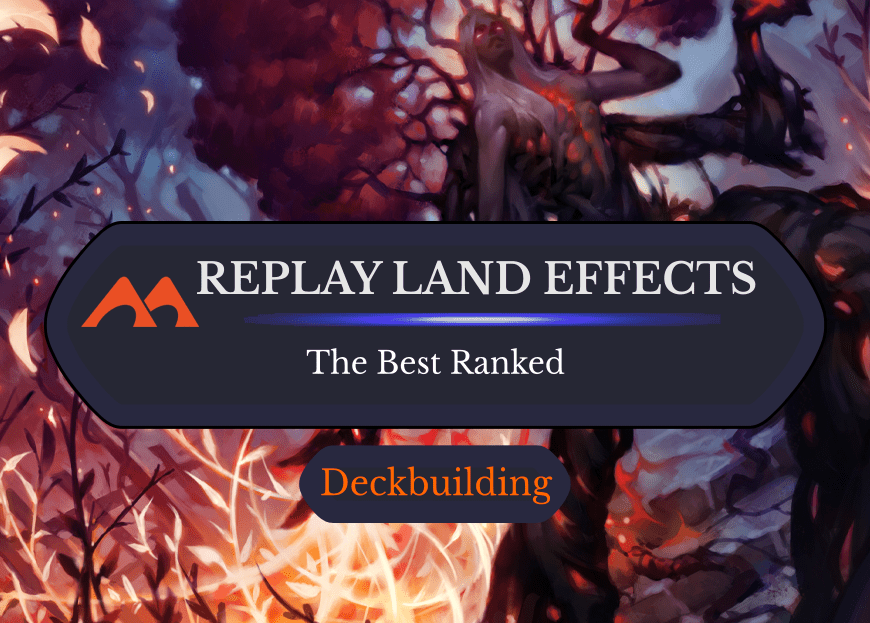
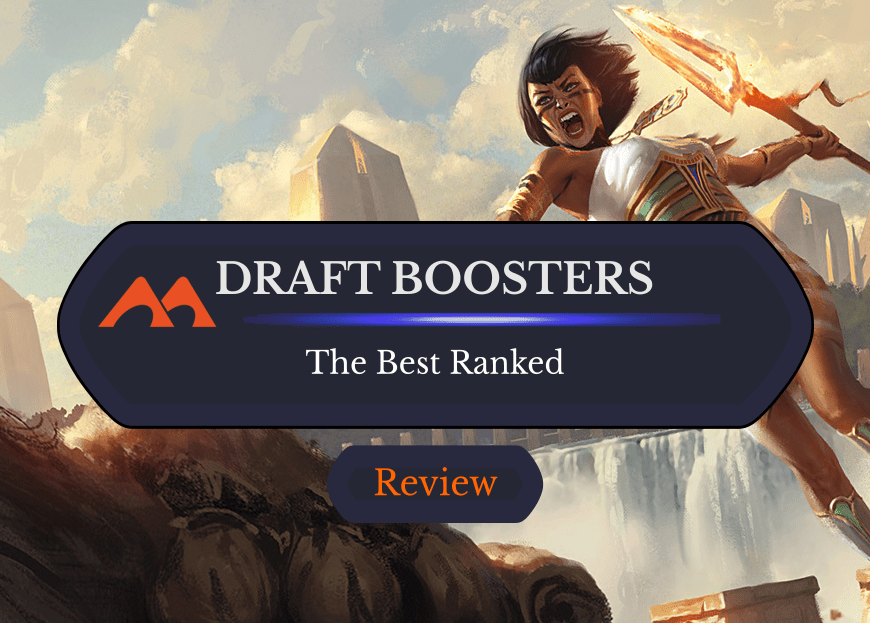
Add Comment